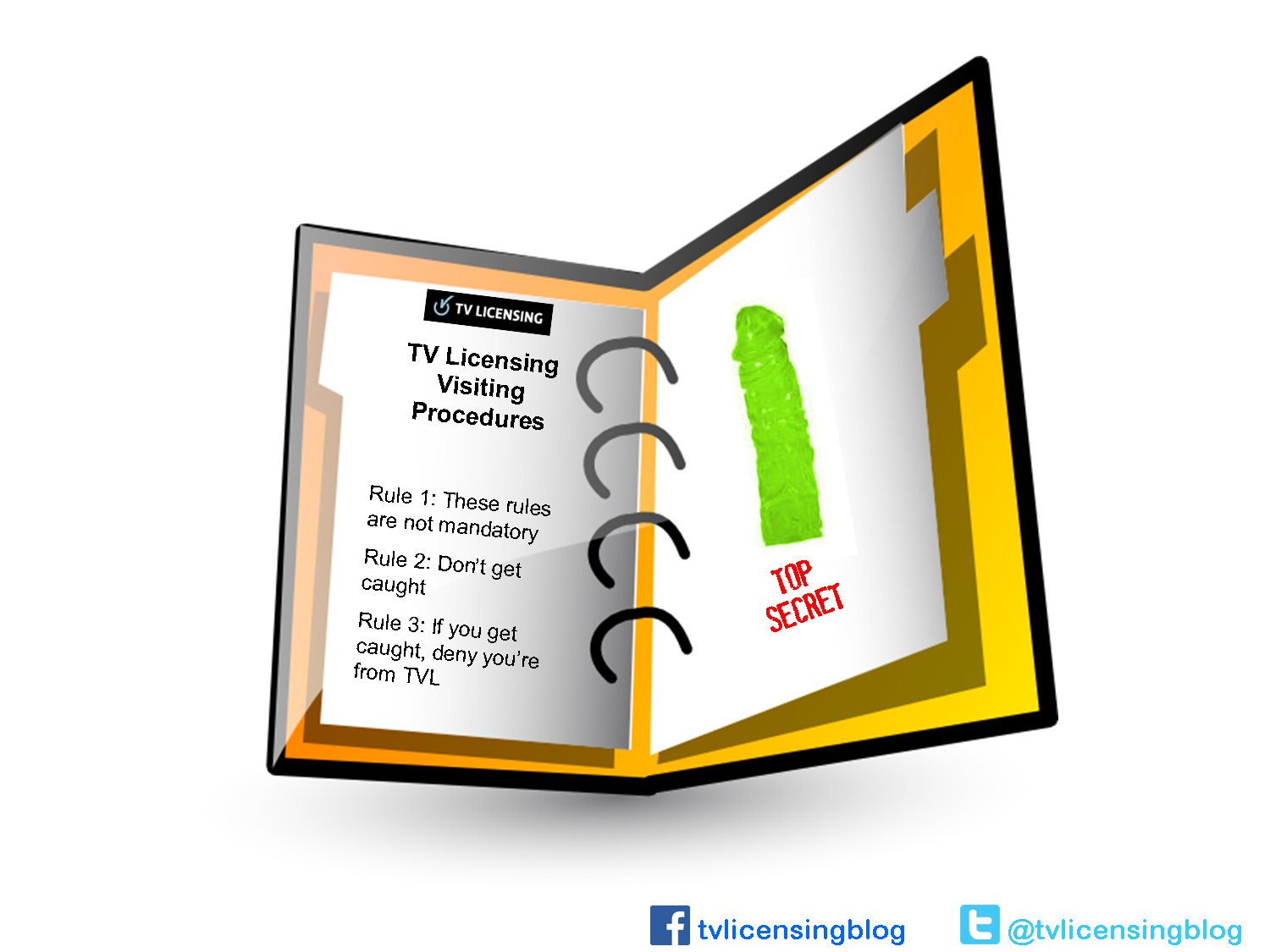Today, in order to break our recent bout of blogger's block, we present TV Licensing's own "aide memoir" designed to "alleviate the problems experienced" when their simpleton goons complete the TVL178 Record of Interview form.
The completed TVL178 Record of Interview form is THE ONLY piece of evidence TV Licensing can produce against an alleged TV licence evader in court. You heard correctly: ALL of TV Licensing's prosecutions depend entirely on the evidence recorded on this form, most of which is easily rebuttable with a little bit of confidence and legal know-how.
Below, for educational purposes, we reproduce the following segment from chapter 8, section 3 of the TV Licensing Visiting Procedures. The section is reproduced verbatim; abysmal grammar and punctuation included; and red font denotes information usually withheld by the BBC.
Your attention is drawn to the farcical and wholly inadequate "evidence" TV Licensing considers worthy of note:
____________________
1.1 Any person accused of a criminal offence has the right to have evidence against them tested in a court of law. Generally they need not submit a defence. The prosecution must prove beyond reasonable doubt that an offence was committed and that the accused is, in law, guilty of that offence. It is necessary therefore, to regard every interview as potentially a case that will come to trial in court and must be prepared to the same high standard in all cases.
1.2 The best evidence is "direct" evidence - you have seen the set in use - or while under caution, there is an admission of using/watching the set. If this is not available then circumstantial evidence can be used; that is, the set comes immediately into use when tested, is plugged in, is in a viewing position, TV remote control is seen, aerial/satellite/cable TV connection attached. If necessary, an additional notes form should be used to draw the layout of the room, with this being attached to the case papers. Also the presence of an aerial or satellite dish on the outside of the property should be noted.
The record of interview form has separate sections for you to note what was seen by you and what was admitted to you. It is vital that you clearly note what you saw during the visit, separately from what was admitted. Where items may be selected from the form (either as "seen" or "admitted"), these are to be circled to clearly indicate what was observed or said. This will not only affect the wording of the statement of facts should a summons be issued, but you will be reliant upon your notes should your evidence be challenged in court.
1.3 It is essential that if the interviewee does not admit use, that you note the circumstantial evidence. It is possible that a search warrant may be needed to gain entry to the property, to find and test the set and all evidence gathered. Therefore it will be vital to determine if such a search warrant is appropriate. It must be remembered that a search warrant cannot be used to gather other information, like names or dates of birth.
1.4 It is important that each and every case is given the same diligent and careful approach so that the best evidence can be presented in court.
____________________
TV sets, TV remote controls and TV listings magazines? What a complete and utter load of bollocks. None of these things indicate TV licence evasion in any way, shape or form.
Remember that TV Licensing goons need to sink their claws into at least one victim every hour, as part of their basic terms of employment.
Some of them aren't particularly bothered if that victim needs a TV licence or not, as long as it clocks their tally towards the career-saving weekly target of thirty eight "Code 8" prosecution statements for a full-time goon.
Anyone who doesn't legally need a TV licence has no legal business with TV Licensing. People in that situation are advised to ignore TV Licensing at every opportunity. TV Licensing are scum and their people should not be trusted.
For more information please download our free ebook, TV Licensing Laid Bare.

.jpg)
3 comments:
According to Pipa Doubtfire herself
http://www.bbc.co.uk/blogs/aboutthebbc/entries/430d0201-cee1-3a97-99c1-13637d412049
about 36 visits a day were made per enquiry officer. If we assume an 8 hour day were're talking around 5 visits an hour.
But the BBC Trust in found that the BBC's 'Officers' made contacts in less than 1 in 5 cases in 2007/8. In other words the goons will get to speak to one person per hour (roughly).
http://downloads.bbc.co.uk/bbctrust/assets/files/pdf/review_report_research/tvl/tvl_report.pdf
So the goons are under pressure to get 'confessions' from anyone who opens the door to them in order to get their commission.
In Scotland, the form has to be signed by 2 'Officers' to count as a code 8 because the law is different up there. They need to have a corroborating witness on the prosecution statement. They have a code 9A up there which means: visit made by one officer where a code 8 'could have been claimed'
They would be out of the job if it wasn't for the few people who do open the door when they go knocking. What a crying shame. That's why it pays to keep your door shut and leave them standing out in the cold. ;)
Post a Comment